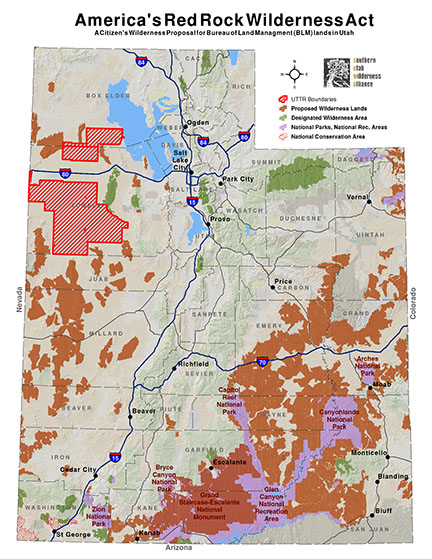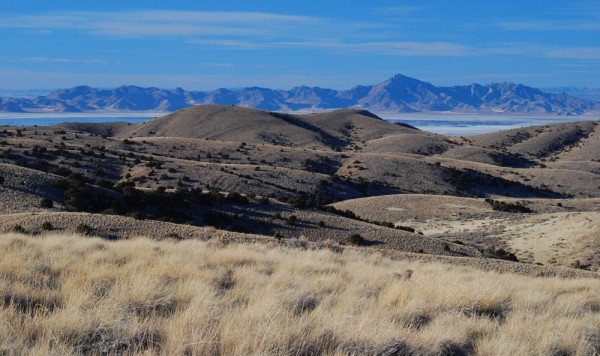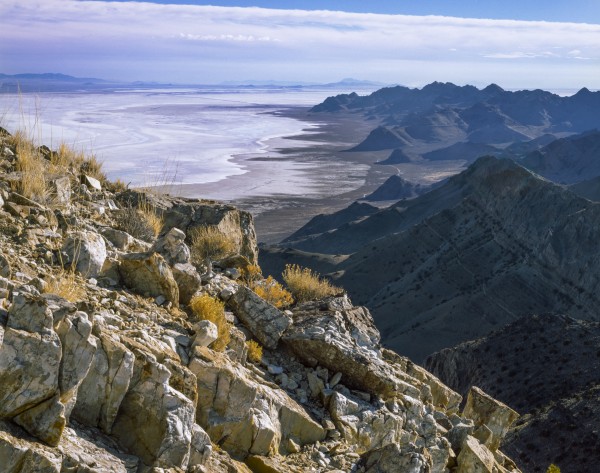
The Utah Test and Training Range (UTTR) is the largest training ground in the United States, covering almost 1.7 million acres in Utah’s West Desert. The Air Force, Army and Marine Corps all conduct training here.
Recently, in order to accommodate a new fleet of F-35 aircraft, members of the Utah delegation have proposed an expansion of this training range, which would overlap with about 700,000 additional acres of lands managed by the federal Bureau of Land Management.
But the delegation is also seeking to use the legislation as an excuse to give road rights-of-way across federal lands to several Utah counties, and to trade away public lands to mining interests. Neither of these add-on proposals have anything to do with national security, and would irreparably harm these unique public lands.

Many of the areas included in the proposed expansion are popular with hunters, hikers, campers and historic preservationists for their natural beauty, abundant wildlife and cultural and recreational value. As currently written, the expansion would not protect the wilderness values of places BLM agrees are wilderness caliber landscapes — including the Newfoundland Mountains, Dugway Mountains, and the Fish Springs Range — and could permanently compromise their future eligibility for protection.
It doesn’t have to be this way. In 2006, similar legislation in the West Desert led to a win-win solution for the Cedar Mountains Wilderness, which was designated as part of a larger military bill known as the Utah Test and Training Range Protection Act. Wilderness areas make ideal buffer zones for military facilities and have been intentionally designated in legislation seeking to protect military resources. That’s why the Cedar Mountains designation enjoyed the broad, bipartisan support of members of Congress. They knew it was possible to accommodate the needs of the military without compromising the beautiful public lands that make up the fabric of American life that our armed forces fight to defend.
Tell your members of Congress National Security and Natural Resources can and should coexist!


